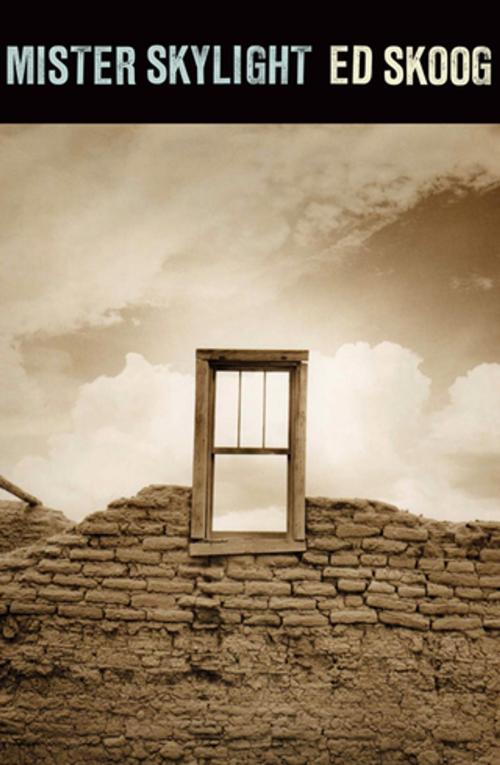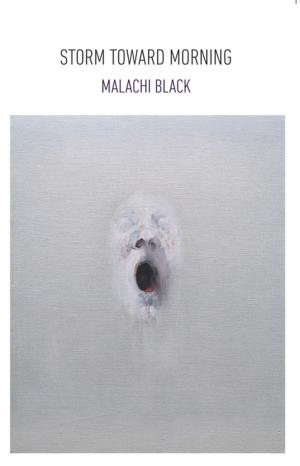| Author: | Ed Skoog | ISBN: | 9781619320123 |
| Publisher: | Copper Canyon Press | Publication: | September 1, 2009 |
| Imprint: | Copper Canyon Press | Language: | English |
| Author: | Ed Skoog |
| ISBN: | 9781619320123 |
| Publisher: | Copper Canyon Press |
| Publication: | September 1, 2009 |
| Imprint: | Copper Canyon Press |
| Language: | English |
"Skoog’s first full-length collection captures and presents the truth of the truth: our under-analyzed, overlooked, often fragile existences on earth."—Dave Jarecki
"Skoog’s use of language is disorientating, vivid and surprising, all the things I love about great poetry."—Nathan Moore
"Ed Skoog purposefully blindfolds us, spins us around and dares us to find a target. He wants us to be unbalanced in our interaction with the work; he wants our experience to be unsettling, for the writing to 'arrive like a hostage, an ear, a finger in the mail' (from 'Party at the Dump')."—Carolee Sherwood
The Stranger writes, "Ed Skoog's poetry is so ambitious it takes my breath away.. he knows how to braid pop culture into small personal melancholies and into large generosities."
X. J. Kennedy writes, "This is the damnedest book. I love it like crazy. Skoog is a dazzling new talent who not only promises, but achieves."
The phrase “Mister Skylight” is an emergency signal to alert a ship’s crew, but not its passengers, of an emergency. This debut collection is alert to disasters—the flooding of New Orleans and the wildfires of California—and also to the hope of rescue. Interior dramas of the self are played out in a clash of poetic traditions, exuberant imagery, and wild metaphor.
Ed Skoog, who worked for years in the basement of a museum in New Orleans, developed personal connections to objects and paintings. “Working on an exhibition about the building trades was important to this book,” he writes. “Spending weeks listening to the oral histories of plasterers, steeplejacks, and carpenters connected me to my own family’s stories.” Marked by uncommonly intense and considered use of language, Skoog demonstrates a rich attention to form and allusive narrative as he attends to the details of contemporary politics, culture, place, and relationships.
. . . Not to be the one who left is to live in an alarm.
The unstraightened bed.
But don’t I always bring bright souvenirs from our travels,
a feather, a coin, a bee? Astonishing in my palm.
Minutes past your touch, what our bodies were
is disappearing like a ship caught in polar ice.
Ed Skoog was born in Topeka, Kansas, in 1971. He earned degrees from Kansas State University and the University of Montana. His poems have been published in many magazines, including Poetry, American Poetry Review, and The Paris Review. He lives in Seattle.
"Skoog’s first full-length collection captures and presents the truth of the truth: our under-analyzed, overlooked, often fragile existences on earth."—Dave Jarecki
"Skoog’s use of language is disorientating, vivid and surprising, all the things I love about great poetry."—Nathan Moore
"Ed Skoog purposefully blindfolds us, spins us around and dares us to find a target. He wants us to be unbalanced in our interaction with the work; he wants our experience to be unsettling, for the writing to 'arrive like a hostage, an ear, a finger in the mail' (from 'Party at the Dump')."—Carolee Sherwood
The Stranger writes, "Ed Skoog's poetry is so ambitious it takes my breath away.. he knows how to braid pop culture into small personal melancholies and into large generosities."
X. J. Kennedy writes, "This is the damnedest book. I love it like crazy. Skoog is a dazzling new talent who not only promises, but achieves."
The phrase “Mister Skylight” is an emergency signal to alert a ship’s crew, but not its passengers, of an emergency. This debut collection is alert to disasters—the flooding of New Orleans and the wildfires of California—and also to the hope of rescue. Interior dramas of the self are played out in a clash of poetic traditions, exuberant imagery, and wild metaphor.
Ed Skoog, who worked for years in the basement of a museum in New Orleans, developed personal connections to objects and paintings. “Working on an exhibition about the building trades was important to this book,” he writes. “Spending weeks listening to the oral histories of plasterers, steeplejacks, and carpenters connected me to my own family’s stories.” Marked by uncommonly intense and considered use of language, Skoog demonstrates a rich attention to form and allusive narrative as he attends to the details of contemporary politics, culture, place, and relationships.
. . . Not to be the one who left is to live in an alarm.
The unstraightened bed.
But don’t I always bring bright souvenirs from our travels,
a feather, a coin, a bee? Astonishing in my palm.
Minutes past your touch, what our bodies were
is disappearing like a ship caught in polar ice.
Ed Skoog was born in Topeka, Kansas, in 1971. He earned degrees from Kansas State University and the University of Montana. His poems have been published in many magazines, including Poetry, American Poetry Review, and The Paris Review. He lives in Seattle.















